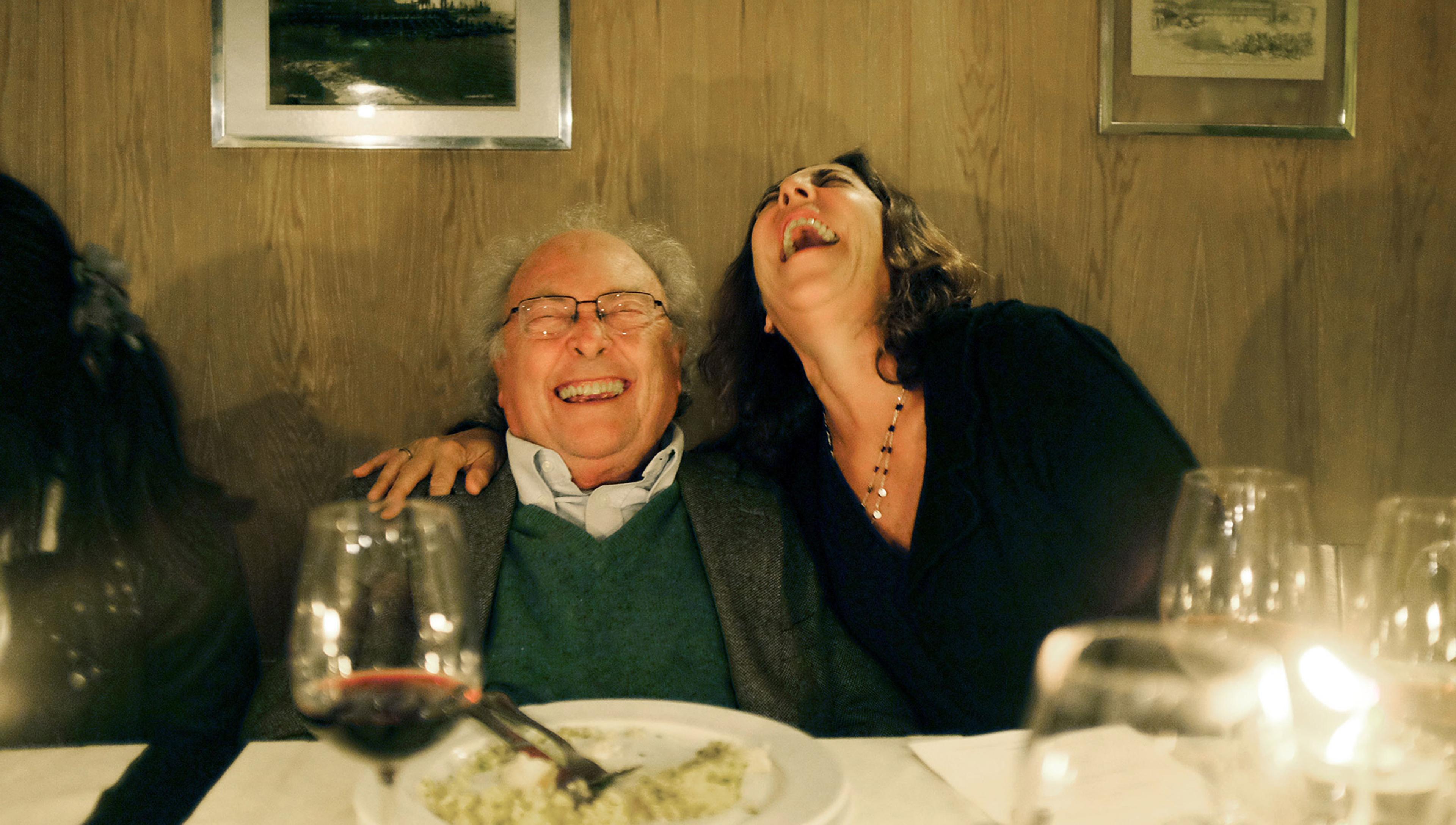Photo by Ferdinando Scianna/Getty
Maintaining a long and happy relationship requires a specific skillset. Learning to laugh at yourself and together is key
From an evolutionary perspective, we’re poorly equipped to navigate the kind of extremely long-term intimate partnerships that many people today aspire to.
Nowadays, the average age of first marriage in many countries around the world is in the 20s. Assuming these newlyweds live into their 70s or 80s (thanks to advances in modern medicine), and bullishly aspire to a life-long commitment, this would put their projected marriage length close to the 60-year range – far longer than the relationships experienced by the majority of humans for most of history.
The comedian Wanda Sykes put it less academically:
Till death do you part. That’s biblical times. Moses wrote that. That’s the Old Testament. They had no problem saying till death do you part back then because they didn’t live that long. They had good plagues. Soon as that guy got on your nerves, here come some locusts to eat his ass up for you.
These days, for loving couples to coexist under the same roof for such extended periods of time, they must – among other pressures – undergo a challenging domestication process: whether the toilet seat should be left up or down; mail left sitting, or immediately opened; tinfoil placed in the recycle bin or in regular trash; dirty dishes left in the sink overnight, or cleaned off and stacked in the dishwasher before bedtime; the use of subtitles during TV shows, or not. The list is endless. And for many relationships, this is enough to upend them.
Relational boredom is another challenge – this is when a person’s marital or cohabiting situation goes through longer-than-expected phases of being unexciting and monotonous, while also seeming extraordinarily inconvenient and stressful to end. Battling the fear of missing out, taking flight, obsessively thinking about reinventing oneself, and going on a perennial odyssey to find one’s true soulmate are classic ways vulnerable people respond to ordinary relational boredom. No matter that realistically minded, conscientious, caring individuals do not abdicate intimate ties so impetuously. Having it in our psychological toolkit to somehow find a way to accept and adapt to the humdrum aspects of domestic life with significant others is imperative.
When my brother-in-law can’t find kitchenware where he left it, he will say things like: ‘If you were a spatula, where would you be?’
What is the most important tool in that box? Humour, irony and an appreciation for the absurd are often overlooked by marriage scholars as mindsets conducive to success at love. Yet I believe they provide the best way for intimate partners to adapt to all the mundane annoyances baked into marriage and long-term romantic partnerships.
Join 84,000+ weekly newsletter subscribers
Intriguing articles, practical know-how and immersive films, straight to your inbox every Friday. Our content is 100 per cent free and you can unsubscribe anytime.
For starters, the smooth use of humour is an excellent way to deflect an irksome remark, not take a loved one’s harsh tone personally, and avoid an argument. Along these lines, a client recently told me a story about an interaction with her husband, who tends to question her spending habits. She bought some large baskets for the backyard. In a critical tone, he quizzed her on what uses she could possibly have for them. Countering with a joking tone, she ludicrously proposed she could sit in them, and pretended to do so. They both cracked up laughing and that was the end of it.
Minor nuisances can also be deftly handled with light-heartedness. When my brother-in-law cannot find kitchenware where he last left it, he is fond of saying to my sister-in-law things like: ‘If you were a spatula, where would you be?’ The wife of one of my best friends is in the habit of addressing his spaciness with comments such as: ‘Did you mean to leave the burner on?’ An overtalking friend usually punctuates his long-winded expressions with droll comments such as: ‘to make a long story longer…’ And he jokingly prefaces delivery of his new ideas with a phrase that seems brash, but isn’t because of his jolly tone – ‘back to me’ – which oddly makes it much easier to listen to him for longer.
Then there’s ‘praise as critique’ – a common form of sarcasm that, when used in good-natured ways, can be a clever and subtle way of kindly putting a partner on notice that life would be easier for everyone if they just dropped an annoying habit. Pertaining to this, I distinctly recall a comment made by a neighbour in reference to his boyfriend: ‘Julian always has food on his face. Other than that, he’s perfect!’
According to scholars, these various forms of humour fall into two categories: affiliative and self-enhancing, and both can contribute to relationship longevity. The former involves amusing others to keep things positive and lively in ways that sustain and enrich a relational bond. The latter reflects an ability to poke fun at yourself in a good-natured way, or to see the humour in unfavourable life events. According to a Belgian study, which compared dozens of married and divorced men and women, a sure-fire way to be satisfied in your relationship and lessen the risk of divorce is to liberally indulge one’s propensity to use affiliative and self-enhancing humour.
Older couples – married at least 35 years – rely more heavily on humour to convey tenderness and lessen friction
Lots of shared laughter is a bellwether for how alike partners are and how close they feel to each other. Summing up some research findings on this topic, Sara Algoe at the University of North Carolina at Chapel Hill concluded: ‘People who spent more time laughing with their partner felt that they were more similar to their partner. They had this overlapping sense of self with the other person.’ Algoe’s research, with Laura Kurtz, was limited to people in their 20s and 30s who had been romantically involved for an average of just over four years, but I imagine the same rule would apply to older couples in longer relationships. Other studies of younger couples testify to the significance of humour and laughter for relationship success. A CBS News poll from 2010 found that a sense of humour was five times more important than sex when it comes to building a successful marriage. A 2018 study out of Romania looking at young people romantically involved for one to five years revealed that a sense of humour outranked physical attractiveness, ambition, earning potential and an exciting personality when evaluating mates.
Over the long arc of a relationship, humorous exchanges and shared laughter take on added importance. It has been shown that, compared with middle-aged couples married at least 15 years, older couples – married at least 35 years – rely more heavily on humour to convey tenderness and lessen friction. This prompted an article in Science Daily in 2018 encouraging partners to stay the course:
Honeymoon long over? Hang in there. A new University of California, Berkeley, study shows those prickly disagreements that can mark the early and middle years of marriage mellow with age as conflicts give way to humour and acceptance.
As couples age, snickering often replaces bickering in the joint venture to make one’s dwindling years less friction-filled and more joyful.
That’s certainly true in my marriage. Just the other day, over breakfast, my wife, Janet, gingerly mentioned that she’d had a lousy night’s sleep because of my snoring. Wide awake and irritated, she had audiotaped my snoring on her smartphone as incontrovertible proof. Listening to it together at the breakfast table, I quipped: ‘Wow, that’s quite melodic. How can we know with any certainty that’s me?’ We shared a laugh and Janet segued into kindly requesting that I go back to rinsing with a saline solution before bedtime to curb my snoring. A decade ago, a conversation like this would have gone sideways fast, with me defensively referencing her snoring.
The comedian Sinbad is less sanguine in his skit on snoring. Bantering with a woman in the audience who complained of her husband’s snoring – which she insisted was non-existent before their marriage – Sinbad launches into a riotous tirade: ‘You sucked the life out of him. He has no air … He’s just trying to survive the night. He ain’t snoring, he’s dying. A little bit each night. A little bit. Y’all call it sleep apnea, we call it marriage.’
To survive marriage or any decades-long partnership, it’s imperative that each member of a couple adapt to what can be realistically obtained from the other. Only then can a loving bond flourish over time. As Andre, a character in Tayari Jones’s novel An American Marriage (2018) muses: ‘You also have to work with the love you are given, with all of the complications clanging behind it like tin cans tied to a bridal sedan.’ When a relationship plentifully meets our essential needs and is mostly good, what makes it chug along, rather than keep sputtering out, is a mindset of mirthful acceptance in the face of a mate’s negative traits. You need an openness to humorously shrugging off the myriad inescapable sources of potential irritation that are part of sharing a life with a fellow flawed human being. You need to find a way to snicker, not bicker.
This Idea is adapted from the book Flourishing Love: A Secular Guide to Lasting Intimate Relationships (2023) by Enrico Gnaulati.




 Vladimir Nabokov, Lolita (1955)
Vladimir Nabokov, Lolita (1955)